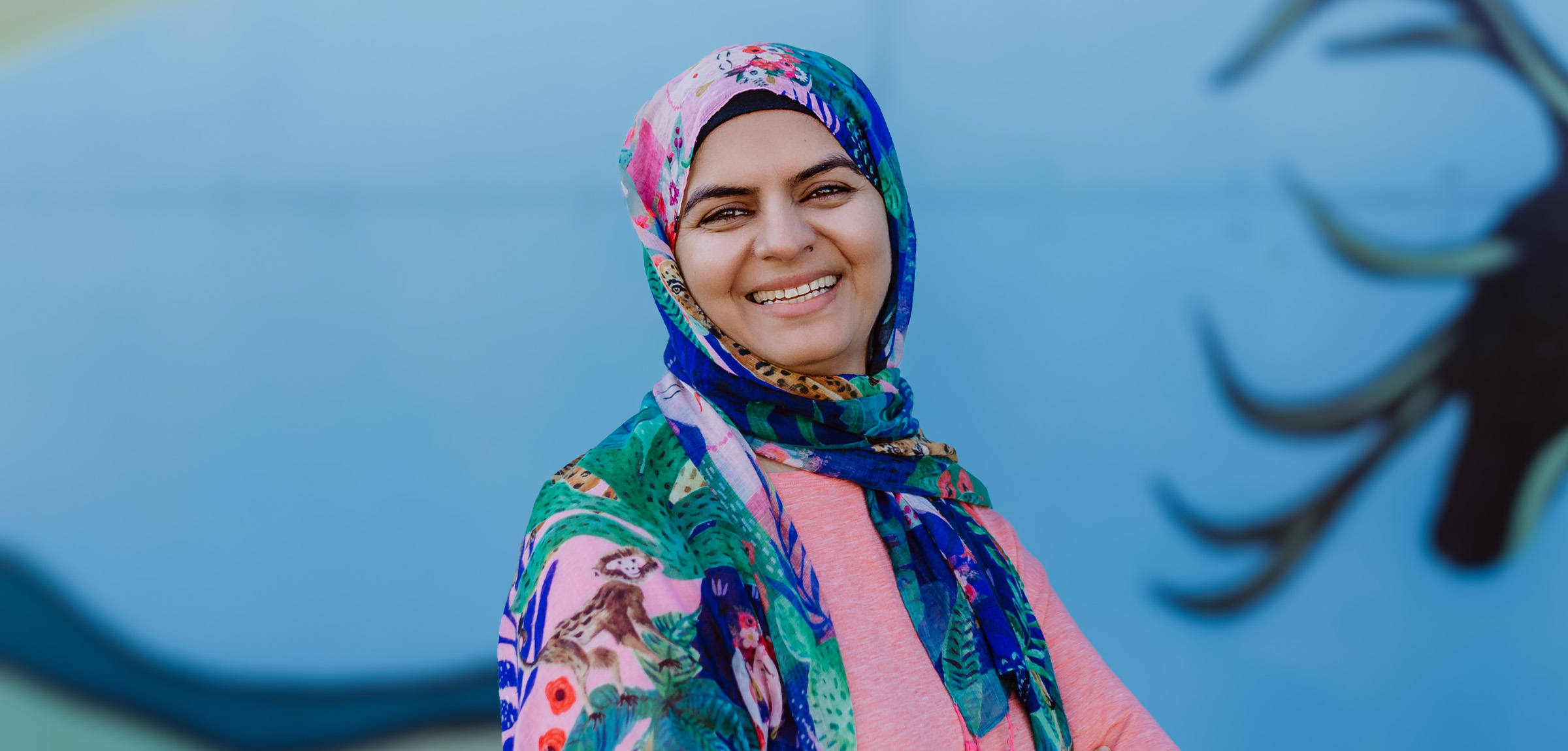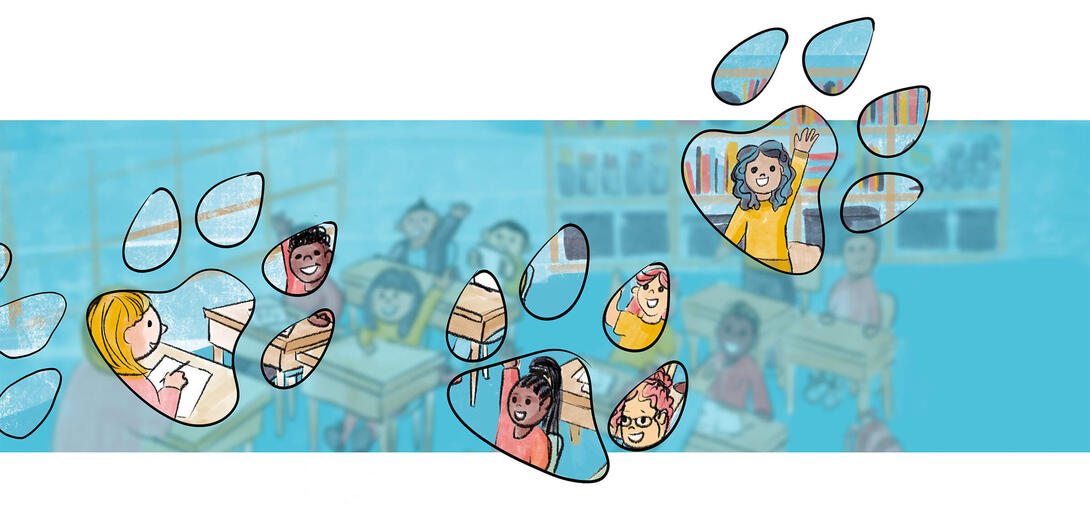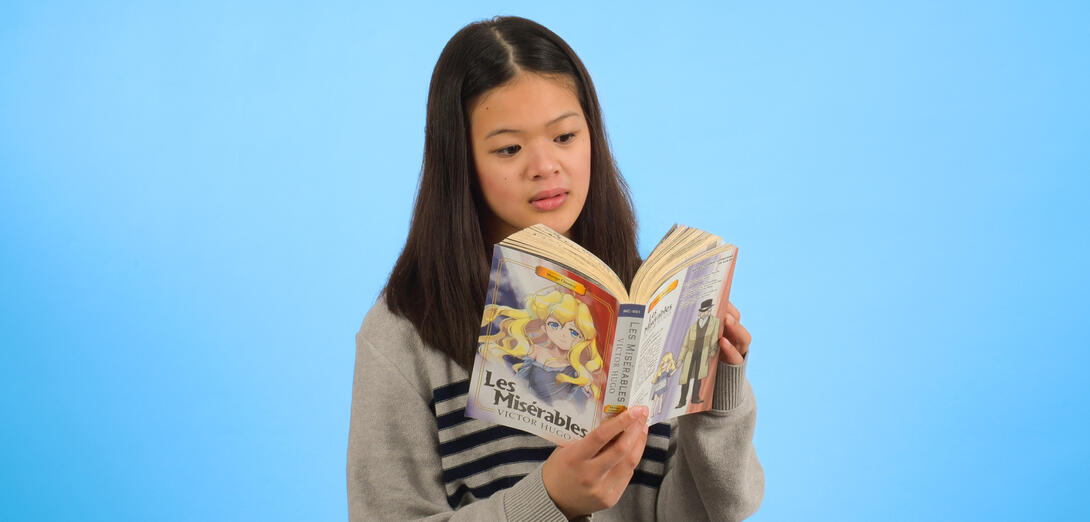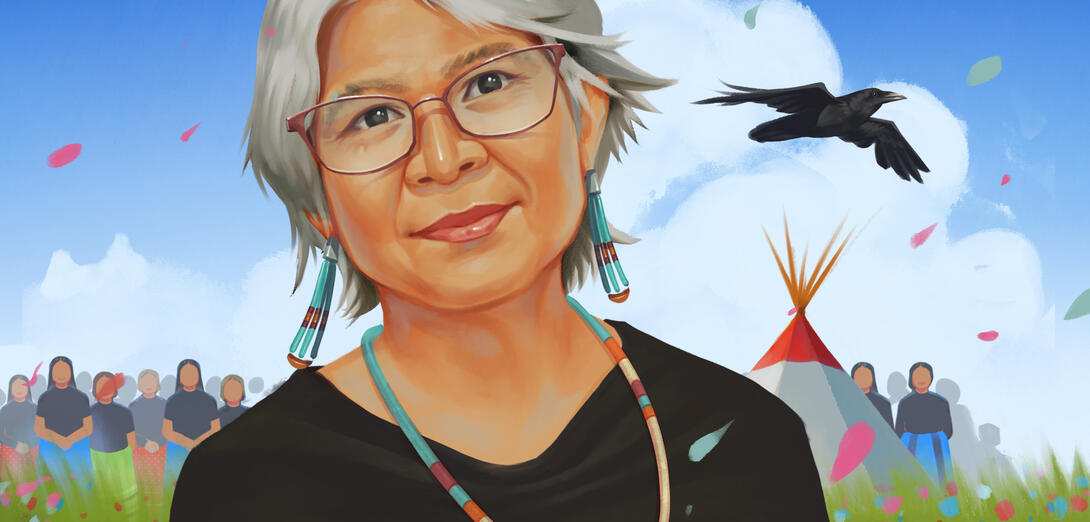Huma Kashif remembers how difficult it was to be unable to teach when she moved to Canada with a teaching degree from her home country of Pakistan, so she’s making it easier for those who follow in her footsteps.
She has set up a Facebook page aimed at internationally educated teachers wanting to teach in Alberta. She has a group of 1,100.
“I’m trying to help these teachers through the process, to make it easier for them, because when I would look online, there would be nothing,” says Kashif.
Coming to a new country
Kashif immigrated to Lac La Biche, in northern Alberta, eight years ago with her husband Kashif Shah and their three children. A year later, the family moved to Slave Lake, where their fourth child was born.
In Pakistan, Kashif had earned her bachelor’s and master’s degrees in business administration. To support her studies, she took a job teaching in a private school. She fell in love with teaching.
“It's not just teaching,” she says. “It's like learning, shaping futures and being the spark that lights someone's path.”
She returned to university for two years earning her bachelor’s degree in education. She never pursued a career in business administration, instead teaching seven years in Pakistan, ranging from elementary school to university.
When Kashif came to Alberta, her bachelor of education required upgrading to meet provincial teaching standards. In the meantime, she spent years gaining experience as a volunteer and educational assistant at Roland Michener Secondary School in Slave Lake.
“It was very frustrating,” she says. “I wanted to be what I was in Pakistan. I love teaching and I love being around kids and students and helping them. And often I would (have) kids telling me, ’Why don't you be the teacher?’”
Stepping up to the challenge
Kashif found it difficult to find information about how to upgrade her teaching credentials. Then she met someone who guided her through the required steps. With support from her principal and vice-principal, she applied to Alberta Education and had her credentials assessed. She learned which courses she needed to take to teach in the province. She had to move to Edmonton to attend the University of Alberta.
“I had to leave my family behind. I had to rent a place. It was not easy at all. I've never lived alone by myself, ever in my life, and without my kids especially,” she says.
In 2023, with the support of her husband and children, along with a scholarship from the university, Kashif completed her upgrading and earned her teaching credentials from Alberta Education, allowing her to officially teach in the province.
There was never a time in Edmonton, says Kashif, that she questioned her resolve to get her Alberta credentials.
Her university classes included language arts, Indigenous studies and ethics. It was all learning that Kashif found valuable, something she didn’t expect.
“First, I thought that it would be a waste of my time going there, but when I learned everything, it was totally what I needed to know. (It was) necessary, especially if you are teaching in this country, you need to know specific things,” she says.
Kashif went through the full hiring process before getting a job as a junior high math teacher at Roland Michener two years ago, where she also did her 10-week university practicum.
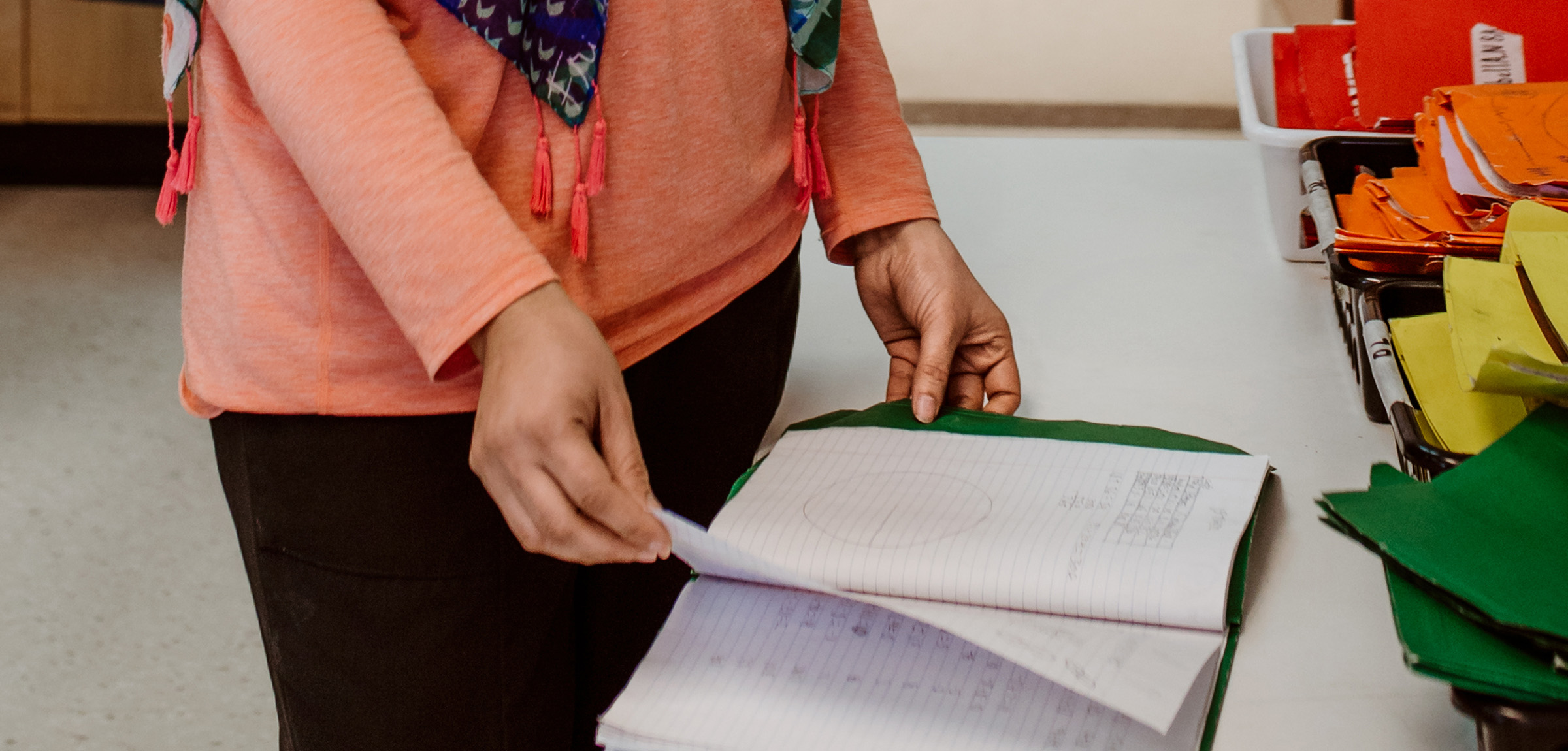
Beyond the classroom
Being new to Canada didn’t stop Kashif from getting involved in her community. Among her greatest accomplishments is being an executive member of the Lesser Slave Lake Multicultural Association.
“(The association) is important because we need to have a voice now for people from different cultures. They feel left out. We are their voices,” says Kashif.
The multicultural association also started a program called Hockey as a Second Language, in which Kashif is active. Since coming to Canada, she has learned to skate and play hockey. She also is an assistant coach on her eldest son’s hockey team.
As for her future, Kashif says she wants to get her doctorate in education.
“I like this thing here in Canada that no matter what age you are, you still learn things,” she says. “You can do anything. There's no end based on your gender, on your age or anything you want, as long as you’re willing, as long as you have the courage.”
Status update with Huma KashifHow does teaching in Alberta compare to teaching in Pakistan? Here, teachers have more autonomy, they must cover the required curriculum, but they have the flexibility to decide how to teach. Whether it’s using manipulatives, outdoor activities or interactive lessons, there’s freedom to make learning more engaging. In Pakistan, teaching is more traditional, with a focus on direct instruction and limited hands-on learning tools. In Pakistan, teachers hold a highly respected place in society; students look up to them, follow their instructions without question and even make way for them when they walk. In Alberta, students have more voice in their learning, and while teachers may not hold the same societal status, I appreciate this shift. I believe in empowering students to express their thoughts, ask questions and take ownership of their education. What do you like most about Alberta/Canada? Alberta is a beautiful place, and even though it’s cold, I don’t mind the weather. It’s truly a land of opportunities, where you can build a future for yourself and your family. What do you miss most about Pakistan? I miss my family and friends the most. I especially miss attending family weddings — big celebrations full of music, dancing and joy. |
